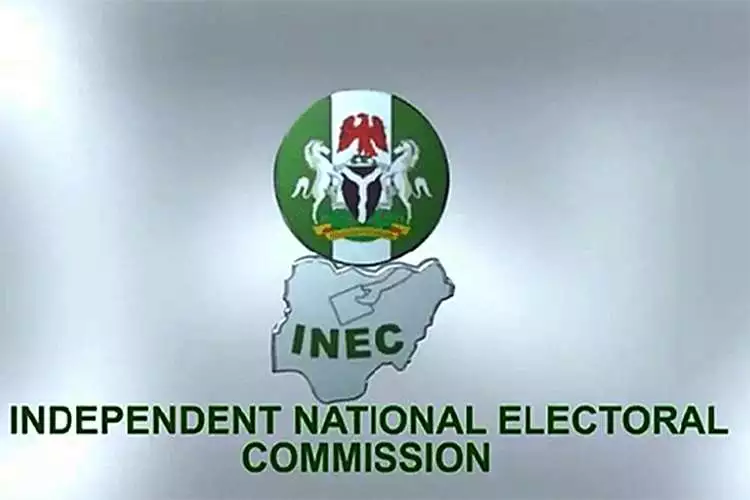A United States of America -based election monitoring organisation, the National Endowment for Democracy has said that the forthcoming 2023 Presidential Election is unpredictable.
The US based agency applauded Electoral umpire, the Independent National Electoral Commission, INEC, for putting into place a technology-driven electoral process, expressing optimism that the country would be the second largest democracy in the world in 2050.
Damon Wilson, the President and Chief Executive Officer of NED, stated these while fielding answers to question pose to him during an interview with journalists in Abuja at a meeting convened by Yiaga Africa to interact with other stakeholders on preparations for the 2023 general elections.
NED, a private, non-profit foundation dedicated to the growth and strengthening of democratic institutions around the world, was established in 1983 by the American Congress for the promotion of world democracy.
NED gives over 2,000 grants to support the projects of non-governmental groups abroad who are working for democratic goals in more than 100 countries.
Wilson said, “Nigeria is the fifth largest democracy in the world; it is on track that by 2050 to be the second largest democracy in the world, even bigger than the United States. But it has got a consequential election coming up in less than 40 days, building on seven elections since the transition.
“And we have seen in this time a Nigerian democracy that has ousted incumbents, where term limits have been enforced, peaceful transitions have taken place and now we have seen a country that is poised to have a more technically effective election that has bolstered the authority, the Independent National Electoral Commission, that is tapping technologies to help ensure greater credibility to vote at a time around the world, where things are kind of tough for democracy and elections in a lot of places are heading to roadblocks. Nigeria is offering an example of a world of progress and momentum.
“There is a lot of energy, a lot of enthusiasm and we are looking to understand that to learn from that and to see how we can help support that.”
He also pointed out that his organisation was not coming to predict who would win the elections or whether there would be a run-off.
Wilson, however, expressed concern over low voter turnouts during elections in Nigeria.
He added that Nigeria’s democracy was really evolving dramatically as the current presidential candidates have made it difficult for Nigerians to know who would win the election.
Wilson said, “It is not really my place to determine or predict the outcome of this election. I am a really interested observer and what I do see is that I watch relatively low voter turnout and your last election.
“And just by the conversations we are having, we do see a heightened level of engagement, heightened level interest, the fact that we’re less than 40 days out, and most Nigerians don’t know who’s going to win and they don’t know whether there’ll be a runoff.
“We have seen a surge of young voters being registered, I think in the last six months, INEC said they had seen in the last period, it was 70 per cent of those being registered were under the youth category. It’s pretty dramatic, remarkable.
“So what I have learned over and over again is even when democracies and elections are imperfect elections become an opportunity for people to organize and express themselves. I have seen over and over again surprises and so I don’t know what is going to happen.
“That is kind of a beautiful thing for Nigeria, the largest democracy in Africa, to be going into an election, and you don’t know what’s going to happen. That is democracy and action. It is exciting and we are going to watch this.”
Wilson also expressed concerns over the protracted insecurity situation across the country ahead of the elections.
He said, “I guess there are two things happening; one is the overall security situation which has been difficult in the country, whether it is been insurgency or terrorism or just banditry, kidnapping, other sources of instability that you know very well.
“But the truth is about 10,000 Nigerians who have died over the past years . from security incidents, that is extraordinarily high, and it does create a difficult environment where will people feel that they have got the security to be able to vote?
“What I was briefed on election related violence, which is much less election related violence is serious because it is targeted towards elections that we have seen political actors who have been, in some cases killed other places intimidated, INEC offices attacked and so what was really interesting from the briefings we saw was that Nigerians are organizing to be able to track this to document it to report it, to take it to authorities to see if security forces are understanding where were their efforts to intimidate and voter turnout four years ago, they can anticipate that today.
“So while this is a major issue, no doubt that I am hearing from Nigerians. I also see a lot of Nigerians focused on this issue of how they can actually provide a greater sense of security, how they can be better prepared, how they can anticipate where there are problems.
“And so ultimately, this is going to be an issue for this election but I am hopeful that it won’t be an issue that will be so disruptive. That said, anybody needs to feel secure to express their vote. That is a sacrosanct act in any democracy.”
Discover more from The Source
Subscribe to get the latest posts sent to your email.








